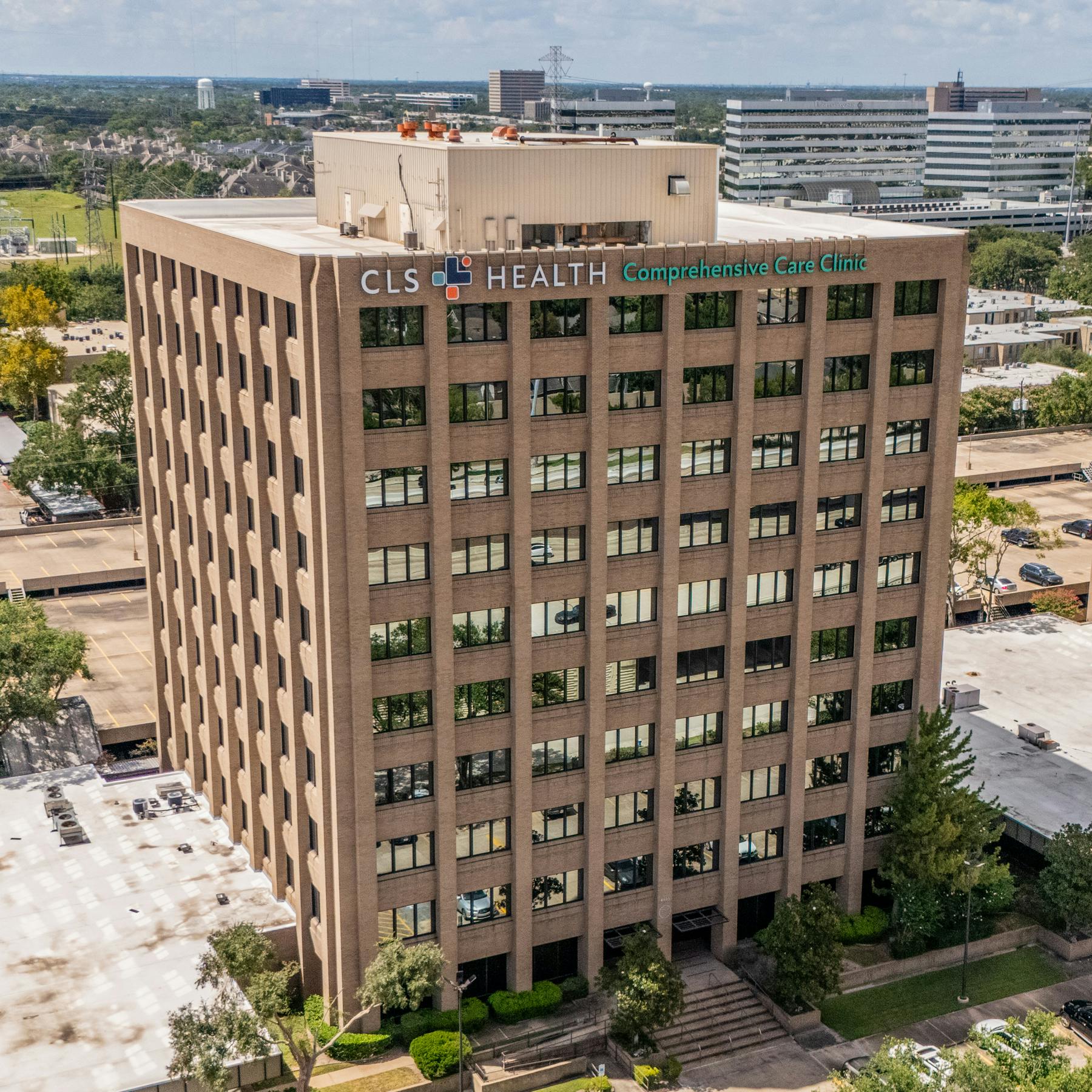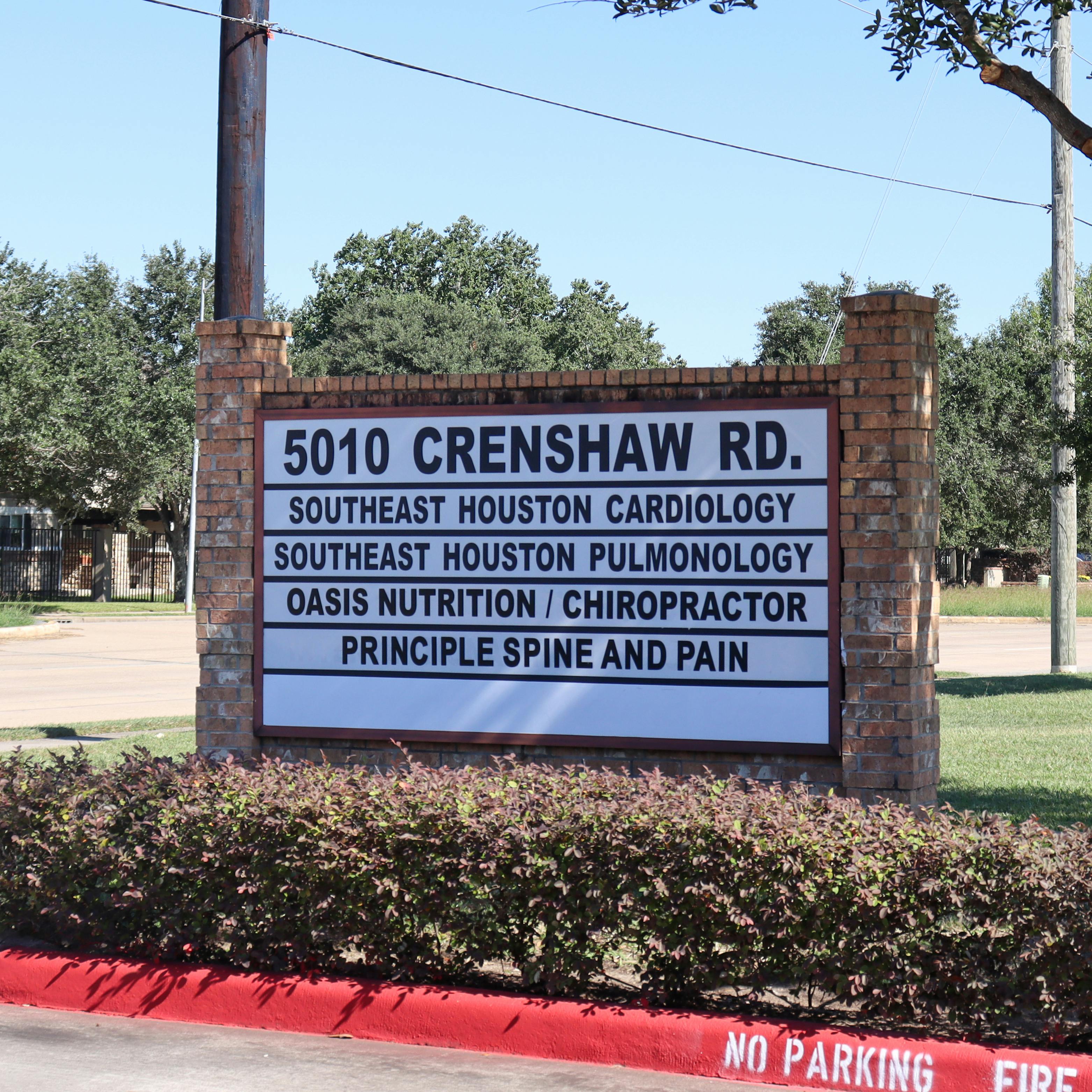Rheumatology

Specialized Care for Joint, Muscle, and Bone Diseases.
CLS Health rheumatologists specialize in diagnosing and treating inflammatory, autoimmune, and musculoskeletal conditions affecting the joints, muscles, and connective tissues.
We use advanced diagnostics and the latest disease-modifying therapies to create personalized treatment plans that address immediate symptoms and support long-term health.
By working with imaging specialists, physical therapists, and other experts across the CLS Health system, we provide coordinated, comprehensive care to help reduce inflammation, restore well-being, and improve your quality of life.
What is a rheumatologist?
Rheumatologists are experts in treating diseases that affect the joints, muscles, and connective tissues, such as arthritis, lupus, and over 100 autoimmune disorders. Their advanced training equips them to diagnose and treat complex conditions that may impact multiple organ systems.
A rheumatologist prescribes medications, suggests lifestyle interventions, and administers or recommends specialized therapies to manage these conditions, relieve a patient’s symptoms, and improve their quality of life.
Providers

Rheumatology

Rheumatology

Rheumatology

Amanda Johnson
FNP-C
Rheumatology

Rheumatology

Rheumatology
Conditions Treated
At CLS Health, our rheumatology team specializes in diagnosing and managing diseases that affect the joints, muscles, bones, and immune system. We take a personalized approach to care, combining clinical expertise with advanced treatments to reduce pain, preserve mobility, and improve quality of life.
We help patients manage conditions such as osteoarthritis, osteoporosis, and Paget’s disease of bone, which can cause pain, stiffness, and mobility challenges.
Our goal is to relieve discomfort, strengthen bones and joints, and slow disease progression through personalized treatment plans that may include medication, injections, lifestyle changes, and physical therapy. Early diagnosis and ongoing management are key to maintaining strength and independence.
Our rheumatologists treat rheumatoid arthritis, psoriatic arthritis, ankylosing spondylitis, and gout—all of which involve chronic inflammation that can damage joints over time. We use advanced imaging and lab testing to confirm diagnosis, then create individualized care plans that combine medication, exercise, and self-management strategies.
By addressing both pain and inflammation, we help patients protect joint health and maintain long-term mobility.
Conditions such as bursitis and tendonitis can cause localized pain and limit range of motion, often affecting the shoulders, elbows, or hips.
We focus on identifying the source of inflammation and providing relief through non-surgical treatments, including physical therapy, targeted exercises, and anti-inflammatory therapies. Our goal is to restore function and prevent recurrence so patients can return to daily activities without discomfort.
We care for patients with complex autoimmune diseases such as lupus, scleroderma, Sjögren’s syndrome, polymyositis, dermatomyositis, and mixed connective tissue disease (CTD).
These conditions can affect multiple organs, so our team coordinates care across specialties to manage symptoms and prevent complications. Through advanced therapies, close monitoring, and patient education, we help control inflammation, preserve function, and improve long-term well-being.
We evaluate and treat polymyalgia rheumatica (PMR) and vasculitis, which can cause muscle pain, stiffness, and inflammation of blood vessels throughout the body.
Our specialists use lab testing and imaging to confirm diagnosis, then prescribe individualized treatment—often including corticosteroids or immunomodulating medications—to reduce inflammation and protect organ function. Regular follow-up ensures that therapy remains safe and effective.
Treatments & Services
At CLS Health, our rheumatology specialists provide advanced diagnostic testing, targeted therapies, and supportive care to help patients manage autoimmune, inflammatory, and degenerative conditions. We focus on reducing pain, improving mobility, and slowing disease progression through personalized, evidence-based treatment plans.
We use state-of-the-art imaging and laboratory testing to accurately diagnose rheumatic and autoimmune diseases. Bone density testing (DXA scans) helps evaluate osteoporosis risk and bone strength, while joint ultrasounds and MRIs allow us to assess inflammation, cartilage health, and soft tissue changes.
For autoimmune conditions, we perform rheumatoid factor and autoimmune panel testing to detect specific antibodies that guide diagnosis and treatment planning.
Our team carefully selects medications to control inflammation, relieve pain, and protect long-term joint and organ function. Disease-modifying antirheumatic drugs (DMARDs) and biologic therapies target immune pathways to slow or stop disease progression in conditions such as rheumatoid arthritis and lupus.
We also use corticosteroids to manage flare-ups and pain relief options like NSAIDs or acetaminophen to ease daily discomfort, always balancing effectiveness with safety and long-term wellness.
When medications alone aren’t enough, we offer targeted procedures to reduce inflammation and support healing. Joint injections—using corticosteroids or hyaluronic acid—provide rapid relief for arthritis and joint pain.
We also perform platelet-rich plasma (PRP) therapy and visco-supplementation, which use your body’s own platelets or joint lubricants to restore function, reduce stiffness, and promote natural tissue repair.
Managing rheumatic diseases goes beyond medication—lifestyle and movement play a vital role. Our team partners with physical and occupational therapists to help improve mobility, flexibility, and daily function through customized exercises.
We also provide dietary counseling for autoimmune conditions, focusing on anti-inflammatory nutrition, and bone health programs for patients with osteoporosis, including fall prevention and home safety education.
Don't see your insurance listed? We may still accept it! CLS Health updates accepted insurance plans regularly. Please call (281) 724-1860 to verify your coverage.
- Aetna Select
- Open Access Selects
- Elect Choice
- Aetna Open Access Elect Choice
- Aetna Choice POS II
- Managed Choice
- Open Choice PPO
- Aetna Medicare Advantage Plans
CLS Health does not accept:
- Aetna CVS Marketplace Plans
* Some providers may not accept this insurance, please call to confirm
- Superior Ambetter Core (Complete, Clear, Focused, Standard Silver and Gold)
- Superior Ambetter Value (Clear Value Silver, Focused Value Silver, CMS Standard Silver & Gold Value, Everyday Value Gold)
- Superior Ambetter Virtual (Ambetter Virtual Access Silver, CMS Standard Virtual Access Basic Silver, Ambetter Virtual Access Gold)
- Superior Health Plan CHIP*
- Superior Health Plan MAPD (Medicare Advantage Prescription Drug)
- Superior Health Plan Medicare
- Superior Health Plan MMP Medicaid*
- Superior Health Plan MMP Medicare
- Superior Health Plan STAR*
- Superior Health Plan STAR Kids*
- Superior Health Plan STAR+PLUS*
CLS Health participates in most Blue Cross Blue Shield plans including:
- Blue Choice PPO
- Blue Essentials
- Blue Essentials Access
- HealthSelect
- HealthSelect of Texas In Area
- Consumer Directed HealthSelect in Area
- HealthSelect of Texas Out of State
- Consumer Directed Health Select Out of State
- HealthSelect Secondary 65+
- Medicare Advantage HMO
- Medicare Advantage PPO
- Medicare Advantage Value HMO
- POS
- Traditional/Par Plan
- TRS-Active Care
- TRS-Care Standard
- BCBS MyBlue Health (Marketplace)
*Some providers may not accept Community Health Choice, please call to confirm
- MarketplacePremier
- Medicaid*CHIPCHIP PerinateSTAR
- Medicare AdvantageDual-Special Needs Plan (D-SNP)
- ChoiceCare PPO
- EPO
- HMO
- HMO Premier
- Medicare Advantage Plans
- HumanaChoice - Medicare Advantage PPO plan
- Humana Gold Choice - Medicare Advantage Private Fee-for-Service (PFFS) plan
- Human Gold Plus - Medicare Advantage HMO & Special Needs Plan
- Military (TRICARE South Region Military Health Plan)
- POS - including Choice POS, National POS Open Access/Plus and Preferred POS Open Access.
- PPO
*Some providers may not accept United Healthcare, please call to confirm
- Commercial, HMO, POS, EPO and PPO Plans (Charter, Choice,Core, Doctors Plan, Freedon, Heritage, Navigate, Nexus ACO, Options PPO, Passport Connect, Select)
- Indemnity
- Medicare Advantage (AARP, Care Improvement Plus, C-SNP, D-SNP, I-SNP, Erickson Advantage, ERS Medicare Advantage, TRS-Care Medicare Advantage, UnitedHealthcare Chronic Complete, UnitedHealthcare Connected (Medicare-Medicaid Plan), UnitedHealthcare Dual Complete, UnitedHealthcare Group Medicare Advantage PPO, United Healthcare Medicare Complete)
- Community Plans* (CHIP, CHIP Perinate, Star, Star Kids, Star Plus, MMP)
- Wellmed (Wellmed Dual SNP Focus, Wellmed Medicare Advantage Focus)
*Some providers may not accept Wellpoint, please call to confirm
- Medicaid (All Texas Plans Including the Below)*
- CHIP
- CHIP Perinate
- STAR
- STAR+PLUS
- STAR Kids
- Medicare Advantage
- C-SNP
- D-SNP
- I-SNP
- Medicare Advantage HMO
- Medicare-Medicaid (MMP)
- Medicare-Medicaid Program (MMP)
- STAR+PLUS MMP
*Some providers may not accept insurance, please call to confirm
PPO Networks
- Beechstreet PPO
- Carnival Cruise Lines PPO
- Envolve Benefit Options Vision-PPO, HMO
- First Health
- Curative/First Health
- Galaxy Health Network
- HealthSmart Preferred Care
- Accel
- Healthsmart Payors Organization
- Multiplan PPO
- Tricare (Humana) PPO/Prime
Employer-Specific Plans
- Brazoria County Employees – Aetna TPA Brazoria County Employees
Workers’ Compensation Plans
- Workers’ Comp
- Auto & Workers’ Comp
Medicare and Medicare Advantage
- Medicare Traditional
- Medicare Advantage
- Memorial Hermann Health Solutions Commercial and Medicare
- Molina Medicare Complete Care HMO SNP
- Medicare-Medicaid Program (MMP)
- STAR+PLUS MMP
- Alignment Health Plan
- AllyAlign Health
- American Health Plans
- Florida Complete Care
- Gold Kidney Health Plan
- Imperial Health
- Independent Health
- Kaiser Foundation Health Plan of Washington
- Kaiser Foundation Health Plan of Colorado
- Mass Advantage
- Presbyterian Health Plan
- PriorityHealth
- Provider Partners
- SCAN
- UCare
- Vantage Health Plan
- Verda Healthcare
- Zing Health
Medicaid and CHIP Programs
- Molina Healthcare* (Marketplace, Medicaid, CHIP, CHIP Perinate, STAR, STAR Kids, STAR+PLUS)
- Texas Children's Health Plans*
- TMHP (Traditional Medicaid) Traditional Medicaid
Specialty Plans
- VA Community Cares Network CCN
FAQs
Rheumatoid arthritis (RA) is an autoimmune disease where the immune system mistakenly attacks the joints, causing inflammation, pain, and stiffness. While the exact cause is unknown, factors like genetics, smoking, obesity, and infections may contribute to its development.
Early symptoms of psoriatic arthritis (PsA) include:
- Joint pain, stiffness, and swelling (often in fingers and toes).
- Skin rashes or nail changes associated with psoriasis.
- Fatigue and morning stiffness.
- Lower back pain (if the spine is affected).
Lupus is diagnosed through a combination of blood tests, physical exams, and symptom evaluation. Key tests include:
- ANA (Antinuclear Antibody Test) – Detects immune system activity.
- Complete Blood Count (CBC) – Checks for anemia and inflammation.
- Kidney & Liver Function Tests – Assesses organ involvement.
- Skin & Kidney Biopsies – In some cases, a biopsy may confirm lupus-related damage.
Osteoporosis weakens bones by reducing bone density, making them more fragile and prone to fractures. Common fracture sites include the hips, spine, and wrists, often occurring with minor falls or even daily activities.
A joint injection delivers medication directly into an inflamed joint to reduce pain and swelling. It typically involves:
- Cleaning the injection site and applying a numbing agent.
- Injecting corticosteroids or hyaluronic acid into the joint.
- Providing post-procedure instructions to minimize discomfort.
Joint injections can:
- Reduce pain and inflammation in conditions like arthritis and bursitis.
- Improve mobility and joint function.
- Delay or prevent the need for surgery in some cases.
- Provide long-lasting relief, often for weeks to months.
Joint aspiration (arthrocentesis) is a procedure that removes excess fluid from a swollen joint. Benefits include:
- Relieving pressure and pain in the joint.
- Diagnosing infections, gout, or inflammatory conditions.
- Improving joint mobility by reducing swelling.
Infusion therapy involves intravenous (IV) administration of medications like biologics, steroids, and immunosuppressants for autoimmune diseases such as RA, lupus, and osteoporosis. It helps manage symptoms when oral medications are ineffective.
Managing RA includes:
- Regular exercise to maintain joint flexibility.
- Anti-inflammatory diet rich in omega-3s, fruits, and vegetables.
- Stress management through meditation and relaxation techniques.
- Quitting smoking, as it worsens RA symptoms.
- Persistent joint pain and swelling that lasts more than six weeks.
- Morning stiffness that lasts over an hour.
- Unexplained fatigue, fevers, or weight loss.
- Family history of autoimmune diseases.




